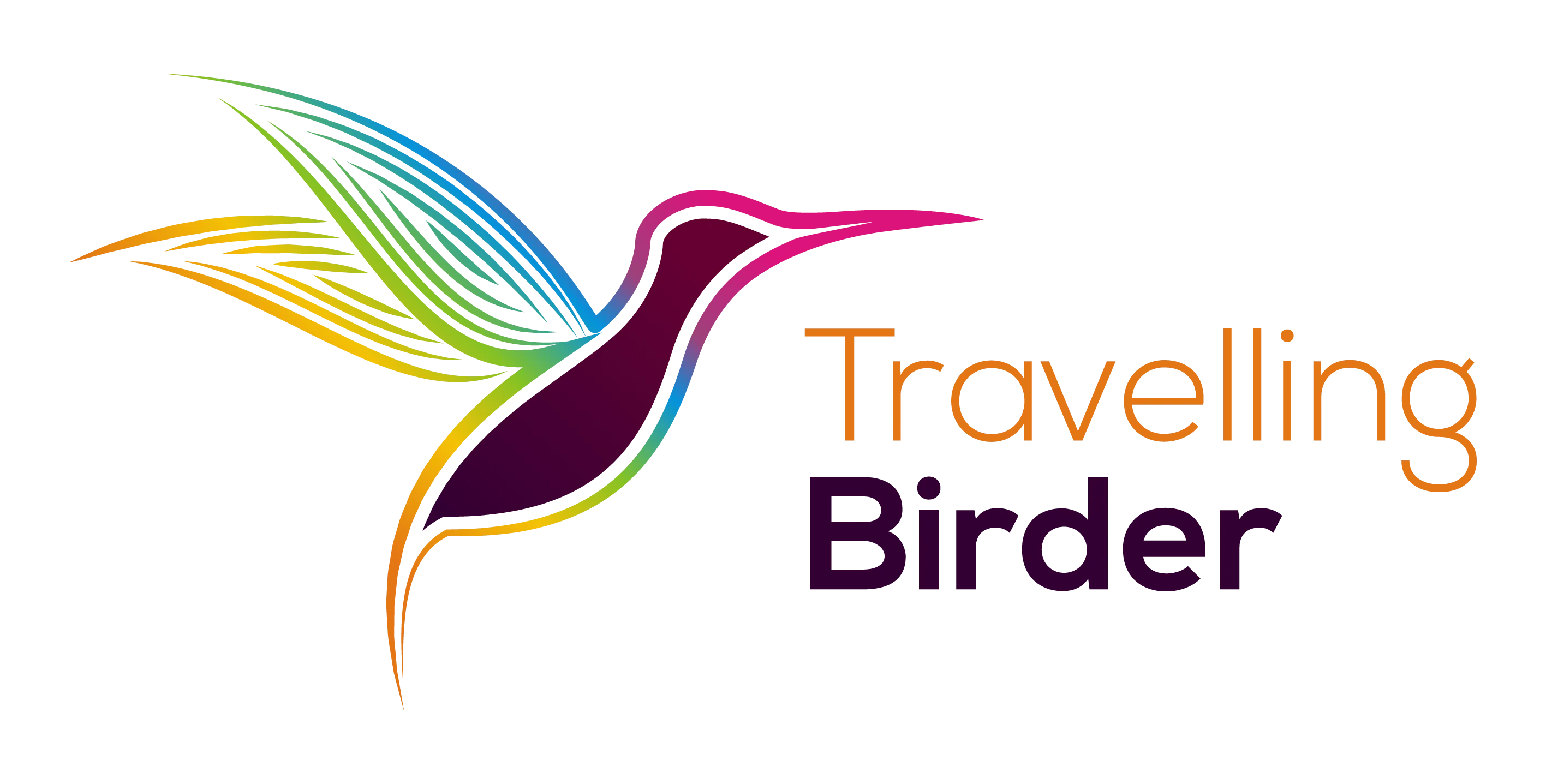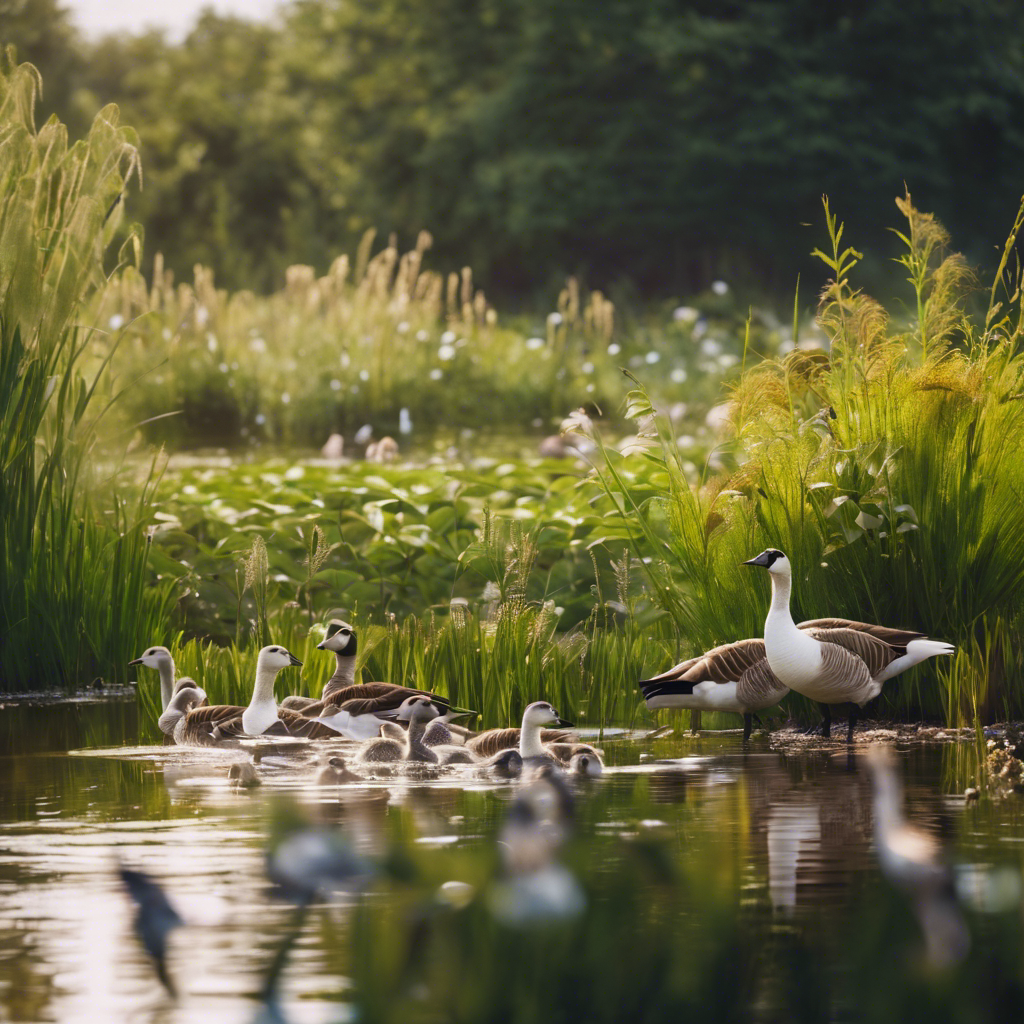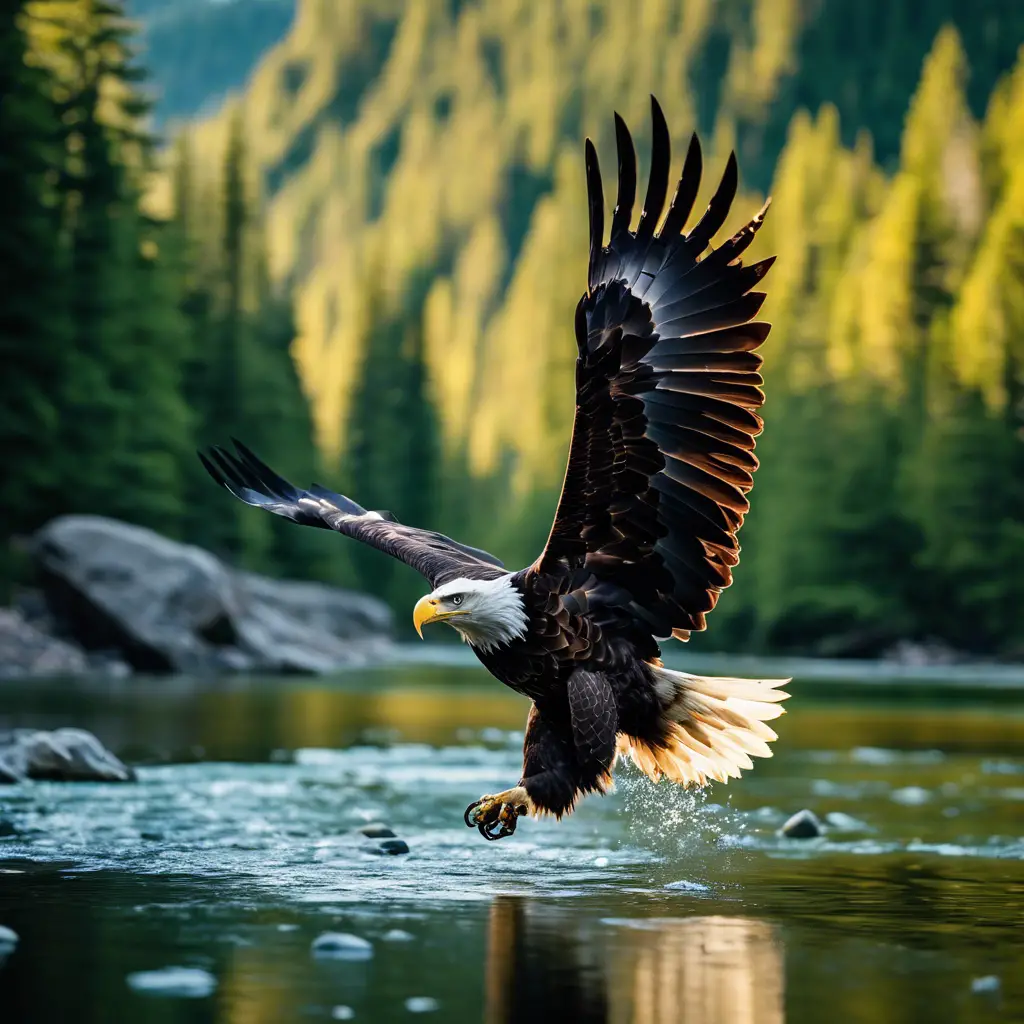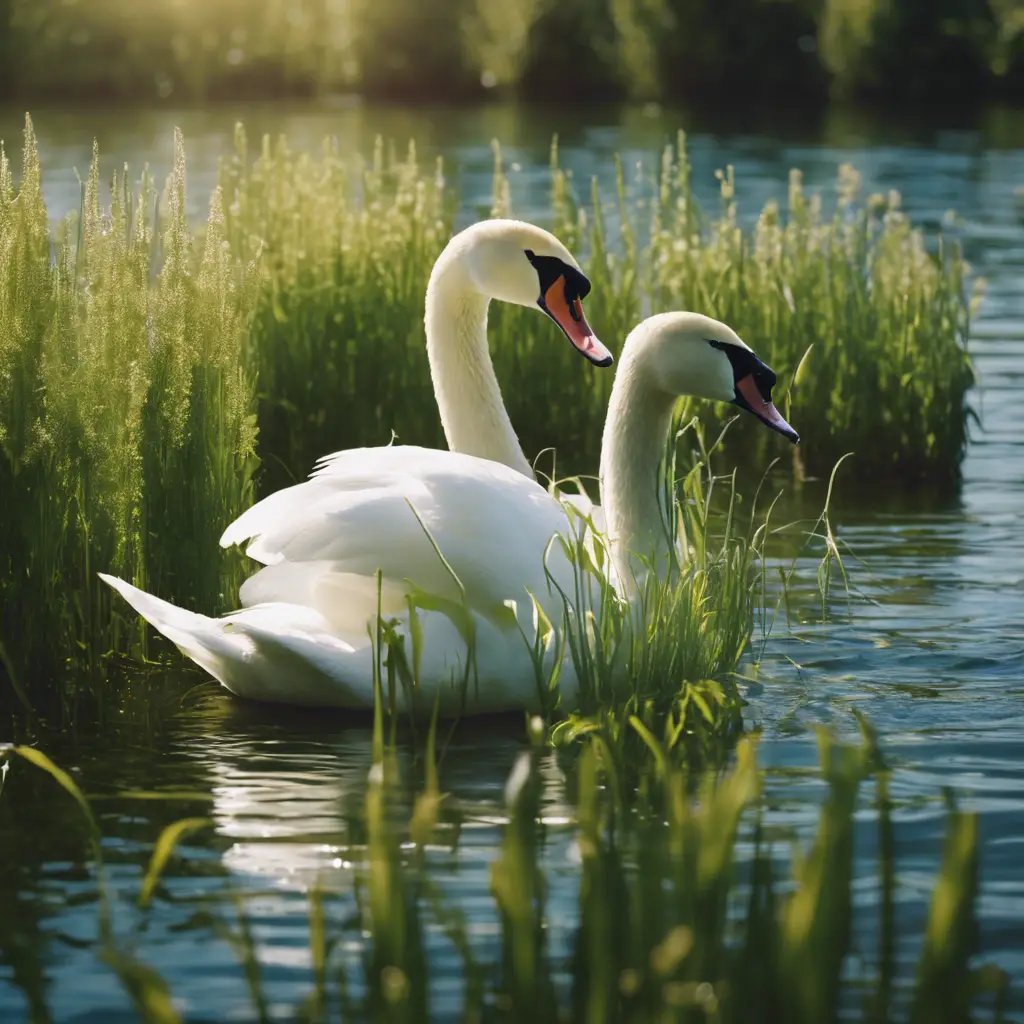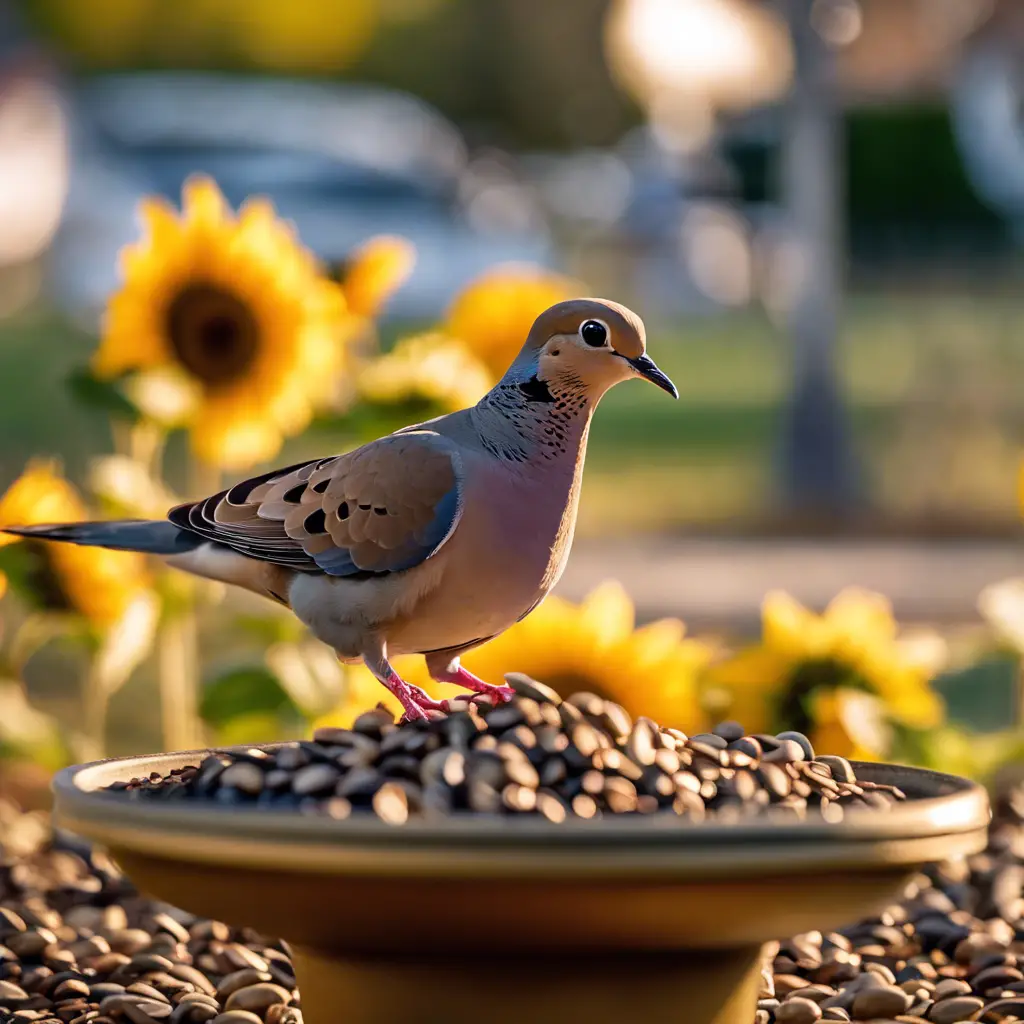In my experience, understanding the dietary habits of geese has been an enlightening journey. As an ornithologist specializing in waterfowl, I’ve spent countless hours observing these magnificent birds.
I believe that by studying their eating patterns, we grasp the intricacies of their ecological role. Once, while tracking a flock, I witnessed their preference for natural forage over human offerings. They feasted on a tapestry of marsh grasses and darted for insects with precision.
This reinforced my belief in promoting their natural diet for their sustained health and the balance of our ecosystems.
Key Takeaways
- Geese have a varied diet that includes grass, aquatic plants, insects, berries, and roots.
- Grass is the staple of their diet, but they also eat insects for added protein.
- A balanced diet for geese includes whole wheat, cracked corn, sweet corn, peas, cabbage, and lettuce.
- Geese adjust their diet with the seasons to meet their changing energy needs.
Geese Dietary Basics
You’ll find that geese typically consume a variety of foods, including grass, aquatic plants, small insects, berries, and roots.
Delving into geese dietary basics, these birds mainly feed on grass, which forms the staple of their diet. However, they’re not just grazers; they eat insects too, adding protein to their omnivorous menu.
While feeding the geese might seem like a kind gesture, it’s crucial to understand their nutritional needs. A balanced diet for these birds includes whole wheat, cracked corn, and other nutritious foods such as sweet corn, peas, cabbage, and lettuce.
Natural Foods in the Wild
In the wild, geese feast on a diverse palette of natural foods that sustain them through the changing seasons. While you might catch them eating grass at the local park, their natural diet is far more varied and crucial for their survival. Here’s what these birds typically munch on:
- Grass and Grain: Fresh grass is a springtime favorite, chock-full of vitamins and minerals. They aren’t shy about feeding on the roots, shoots, stems, seeds, and leaves either.
- Aquatic Plants: These include algae and a range of submerged or floating vegetation that geese readily gobble up.
- Insects and Small Animals: Opportunistic feeding leads them to snack on mollusks, crustaceans, and even small fish.
- Berries and Seeds: Come autumn and winter, geese load up on these for extra carbohydrates to build fat reserves for migration.
Common Aquatic Plants
When exploring the diets of geese, you’ll find they often consume common aquatic plants like duckweed, pondweed, and cattails. These plants are crucial for their nutrition and are readily available in their natural habitat. As geese eat these plants, they’re also getting the hydration they need.
Here’s a glimpse of what these aquatic plants offer to geese:
| Aquatic Plant | Part Eaten by Geese | Nutritional Benefit |
|---|---|---|
| Duckweed | Leaves and stems | High in protein |
| Pondweed | Whole plant | Vitamins & Minerals |
| Cattails | Shoots and roots | Fiber and starch |
Grains and Grasses
As you explore geese diets further, it’s clear that grasses and grains serve as staple energy sources, particularly in colder months. Adult geese, with their robust digestive systems, prefer to feed on a variety of these plants. Here’s what they often munch on:
- Fresh Grass: Geese graze on grass, which provides vital nutrients.
- Whole Wheat: A preferred grain, whole wheat is nutritious and energy-rich.
- Corn: Often found in their habitat, corn is a favorite among geese.
- Barley and Oats: These grains are additional sources of sustenance.
Grains and grasses not only offer the necessary carbohydrates for warmth but also essential vitamins and minerals. Remember, these birds are picky, so while they’ve preferences, they mightn’t always eat everything available.
Feeding Domesticated Geese
You’ll need to supplement their grass diet with grains and vegetables to ensure your domestic geese are getting all the nutrients they require.
When you feed geese who can’t roam as freely as wild ones, consider their dietary needs carefully.
Domesticated geese thrive on a mix of oats, wheat, or corn, making up 20% of their intake.
To boost their nutritional value, offer sweet corn, peas, and leafy greens like cabbage and lettuce.
It’s also beneficial to soak wheat in water before feeding to make it easier for them to digest.
Seasonal Feeding Habits
Geese adjust their diet with the seasons, ensuring they consume enough calories to meet their changing energy needs. As you observe these birds throughout the year, you’ll notice their seasonal feeding habits reflect the necessity to adapt to the available resources. Here’s what geese will eat during different times:
- Spring/Summer: They feast on grass, aquatic plants, and insects, favoring protein-rich foods for breeding.
- Autumn: Geese load up on grains and berries, increasing their carbohydrate intake for energy reserves.
- Winter: When food is scarce, they may need assistance, munching on hay, wheat, and fodder grass mats.
- Migration Periods: Prior to migration, geese forage aggressively to build up fat stores.
Geese’s diets vary from time to time, but these birds are always on the lookout for the different foods they need to thrive.
Foods to Avoid
While it’s important to know what geese can eat, it’s equally crucial to recognize the foods you should never feed them.
Don’t let geese fill up on bread; it lacks the nutrients they need and can harm their digestion.
Sunflower seeds and mixes containing them are also foods to avoid. They’re not part of a goose’s natural diet and can cause health issues.
Overfeeding, particularly in crowded areas, disrupts their natural foraging behavior and leads to problems.
Steer clear of fish or cat food, as these are inappropriate for their herbivorous diet and won’t help them digest properly.
Always remember, feeding geese should be done with care, providing only what benefits their health and well-being.
Supplementing Goose Diets
To ensure your geese maintain optimal health, consider supplementing their natural foraging diet with nutrient-rich foods like sweet corn and peas. It’s a good idea to provide additional foods, especially during times when their usual forage is less available.
Here’s what you can do to supplement their diets effectively:
- Provide Variety: Mix in cabbage, cauliflower leaves, and lettuce to keep their meals interesting and nutritionally balanced.
- Offer Grains: In the winter, it’s crucial to provide wheat or mixed corn to help your geese stay at a healthy weight.
- Balance the Diet: Include a mix of wheat and dried poultry layers pellets for a well-rounded food per day routine.
- Treat Sparingly: While bread can be a treat, ensure it’s given occasionally and not as a staple in supplementing goose diets.
Impact on Ecosystems
After supplementing your geese’s diet, it’s important to understand how their natural feeding patterns affect the ecosystems they inhabit. Geese play a crucial role in maintaining these ecosystems by consuming a wide range of vegetation. Their grazing habits can shape the structure and composition of plant communities, influencing the distribution of vegetation.
When geese eat aquatic plants, they help regulate the growth and spread of these species, maintaining the balance within water bodies.
However, an overpopulation of geese due to overfeeding can cause habitat degradation and negatively impact other species. Additionally, geese contribute to nutrient cycling, as they consume and excrete plant materials, facilitating the transfer of nutrients and energy throughout the ecosystem.
Understanding these impacts is vital to ensuring the health and stability of the environments geese call home.
Frequently Asked Questions
What Kind of Food Do Geese Eat?
You’re curious about geese diets? They munch on grass, seeds, and grains mostly. Don’t forget the occasional berries and insects, and when near water, they’ll dip for aquatic plants. Stick to natural foods for them.
What Should You Not Feed Geese?
You shouldn’t feed geese bread, sunflower seeds, fish, or cat food. These items lack necessary nutrients and can harm their health. Be mindful and avoid overfeeding, especially in crowded areas.
What Do Geese Eat in the Water?
In the water, you’ll find geese munching on aquatic plants, algae, and occasionally snacking on mollusks, crustaceans, and insects they happen upon, all vital for their nutrient intake.
Do Geese Eat Anything Other Than Grass?
Yes, you’ll find geese eating more than just grass. They enjoy roots, seeds, berries, and insects, and even aquatic plants. Offer them nutritious options like sweet corn and peas for a balanced diet.
Conclusion
You’ve learned that geese thrive on a diet of natural vegetation and grains, so it’s vital to respect their needs and avoid harmful foods. Remember, feeding them bread is a no-go.
Instead, let them forage naturally, which helps maintain their health and the balance of local ecosystems. If you’re caring for domesticated geese, provide appropriate grains and greens.
By understanding and supporting their dietary habits, you contribute to the well-being of these fascinating birds.

An avid ornithologist, zoologist and biologist with an unwavering passion for birds and wild animals.
Dr. Wilson’s journey in ornithology began in childhood and led him to obtain a Ph.D. in Ornithology from the prestigious Avian Research Institute. He has worked closely with renowned experts in the field and conducted extensive research and field studies globally.
